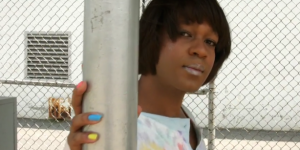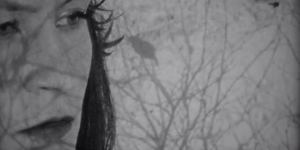6 tips to run a DIY record label
by Tessa Smith and Conor Prendergast
May 19, 2016
To celebrate the release of Brave Radar's new album, the Fixture Records founders offer up some DIY tips.
Since 2008, Tessa Smith and Conor Prendergast have pulled double duties as the primary songwriters of Montreal-based minimalist pop band Brave Radar and the founders of Fixture Records.
Both the band and the little label that could have successfully operated on their own terms, starting with self-glued CDs and cassettes before making the jump to sleek vinyl releases. The Fixture Records catalogue now serves as a yearbook for a beloved class of Montreal musicians that includes Homeshake, Dirty Beaches, Sheer Agony, and Freelove Fenner alongside cult favourites like Femminielli, Mavo, and Chevalier Avant-Garde (previously known as Postcards). Recent releases include breezy post-punk trio Moss Lime, scorched rockers Lantern, and the singular sex machine Jef Barabara.
With this support system in place, Brave Radar themselves are often overlooked. That’s why it’s the perfect time to celebrate the release of Lion Head, the band’s upcoming full-length. It crystallizes the quartet’s previous fixations on vintage psych-pop with a spritz of ’80s new wave to complete their collection of sparkling miniatures.
Before the album arrives on June 10th, Brave Radar take off for a series of shows north and south of the border, listed at the bottom of this piece. Listen to the first song from Lion Head below, and read on for a series of tips from Smith and Prendergast to run a DIY label, mixed in with selections spanning the Fixture Records discography. – Jesse Locke
I don’t know how many useful insights I really have about running a label. Most of the time we’re pretty conflicted and disorganized. The most concrete “things” that I feel like we’ve actually learned through doing this for almost a decade are just really pragmatic, inside-baseball things, like a good way (not even the best way!) to glue one really specific object to another really specific object.
Assuming you don’t want to read a list of gluing advice, I’ve prepared some vague philosophical meanderings that circle around a few label-related thoughts. So if that’s what you go in for, read on, brave reader! (that’s a pun on our band name)
1. Start small.
We started out making a few small editions of CD-Rs and cassettes in our apartment: burning CDs, printing cases, gluing stuff. It was fairly manageable and fun and the stakes were basically non-existent. We didn’t start making vinyl until a few years in, once we’d gotten into some version of a swing.
Vinyl is obviously very expensive to manufacture, especially for smaller quantities. I think if we’d tried to make vinyl right from the beginning (ignoring the fact that neither of us would have been able to afford it), we probably wouldn’t still be doing the label. It also might have required certain weird outside things like grants or loans or credit lines, which would have changed the shape of the label and how things had to operate from the onset.
Starting small with the stuff that was available to us and seemed natural at the time allowed the label to grow at roughly the same speed as the bands we released, who were all just starting out as well.
2. Do it your way.
I think that’s kind of the point of having a small label, isn’t it? Cause you want to do something differently than how you see it being done? I suppose that’s not the actual reason why we started a label initially—because we liked the music our friends were making and wanted more people to hear it—but that meant releasing stuff that wasn’t getting released elsewhere.
I think the value of a good small label is in having its own idiosyncratic style through the stuff it releases and the way it presents itself. That’s really the value to people who become fans, who trust what you put out and will give new stuff a shot. And that can be the value to bands you release who become associated with something that they like and feel reflects them.
When we first started, we did a lot of looking around to see how you’re supposed to do this and what the best way is to do that. We wanted to do it right and to seem like a real label. After a while we realized that no one else was expecting us to be that, and actually there’s value is in us not being that.
We still pop in from time to time, checking in to see what the official way of doing something is, or what a “cool” way of doing something is, but then we can choose which parts we want to abide and which don’t fit. It’s less important to be official or cool and more important to look and sound like yourself.
3. Do it.
Honestly, the best lesson is always going to be trying stuff and making tons of mistakes and being super embarrassed and then trying again slightly differently.
Pretty much every single time we get ready to release something, we have a conversation that’s basically “Why are we doing this? Are we doing this the best way? Is this really a good thing to do?” and then it becomes too late and we have to just do it. That’s how things get done and over time we get better at some parts and figure out which parts we need help with or stop doing them.
4. Keep doing it.
This always seems like an overly obvious point when I try to put it into words, but really just keeping doing the thing you’re doing is enough to make it into a bigger thing over time.* After we’d been doing the label for a few years, new people would move to town and simply by pre-existing their move we’d appear as a “real label.”
I distinctly remember having that feeling about other labels that were operating here when I first moved to Montreal. Everything’s esoteric on the outside. Sticking around and being steady is how opportunities start to turn up.
*Or to not make it any bigger! We actually haven’t really “grown” our label in any real sense since the beginning. Now when we say, “we released an album” it describes a lot more work than it did in the start, and certain stages have become slightly more sophisticated or less futile, but it’s still just two people working on one release at a time.
5. Get help!
Our operations are self-limited by our not wanting to run the label as a business and also not wanting to have to deal with shaping anything towards government funding (side note: definitely not against the getting of grants; my day job is the getting of grants for a cool non-profit), so things stay within the realm of what Conor and I can collectively manage.
But obviously getting help from the people around you also allows the label to be bigger than just two people. We call on friends all the time for help with stuff that we don’t have expertise in, like Richard White for album mastering and Peter Woodford for technical advice.
A lot of labels seem to do more communal work, like inviting friends over to do packaging parties and stuff like that. We don’t do that enough actually, because we’re kind of anti-social a lot of the time, but it seems like that would save a lot of time and be fun! We also don’t like fun.
6. Work with friends.
I’ve realized lately that running the label is kind of the (only?) way we make friends now? In the beginning, we released music by friends of ours who were already around and playing shows with us and stuff.
These days, we tend to reach out to somebody whose music we like and then become friends through working together on the release with them. That sounds really sad when I read it back. But yeah, releasing someone’s music is an intimate, friendly kind of thing that requires trust and respect both ways, so always work with friends.
A few quick freebies:
– Keep good records, both financial records and actual copies of your own releases (we’re bad at this).
– Apply for funding if you’re Canadian! We’ve never done this for the label and often regret not doing it, but also are sometimes conflicted about grants and are mostly ineligible for all of them, but also it would be great to have more money to help us break even and keep doing more for the bands we release, but then we’d have to have a business plan and budgets… see? I’m conflicted.
– Know that running a label is a very stupid thing to do.
Catch Brave Radar live at the following tour dates:
May 21 – Ottawa, ON @ Bar Robo
May 22 – Toronto, ON @ Handlebar
May 23 – Waterloo, ON @ Princess Cafe (all-ages)
May 24 – Akron, OH @ Hive Mind (all-ages)
May 25 – New York, NY @ Cake Shop w/ Mega Bog
May 26 – Providence, RI @ Tommy’s Place
May 27 – Saint John, NB @ Peppers Pub
May 29 – Halifax, NS – Obey Convention w/ Old & Weird (all-ages)
May 30 – Quebec, QC @ Le Sous-Sol Du Cercle
Tags: Music, Featured, Lists, brave radar, Fixture Records, freelove fenner, Homeshake, Jef Barbara, Sheer Agony





